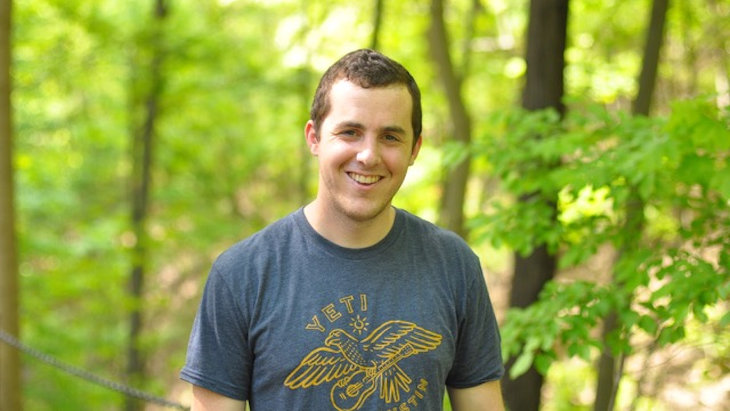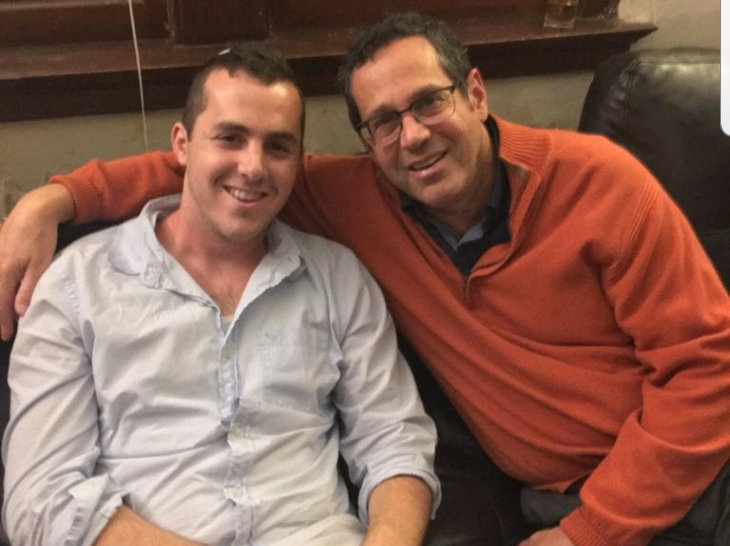 Iran’s Attack on Israel
Iran’s Attack on Israel


5 min read
I didn't know what Kaddish is. Now I'm saying it for over 500 people.
I grew up in Scarsdale surrounded by a large Jewish population. It was the classic story: Hebrew School twice a week, (hating it), a bar mitzvah, and then never going back. With very little connection to Judaism, my life was about sports, hanging out with friends, and having a good time.
If you had told me three years ago that I would be saying Kaddish for over 500 people in one of the few minyanim left in the world, I would have never believed you.
A business major in college, l was looking for a summer internship to take me off the beaten path. Having my interest sparked in college, I started asking questions about Judaism, and my cousin, a conservative rabbi in Toronto suggested a program at Aish HaTorah called JInternship that offered an 8-week internship and beginner learning program. Though very hesitant at first, I ended up deciding to go on the program as other opportunities were quickly disappearing.
The program changed my life.
For the first time, I was interested in learning, and I was in a place where no question was too crazy. I could explore and keep going deeper and deeper and I found the classes fascinating and insightful. I started to slowly fill in the gaps in my Jewish education and change my perspective about Judaism. I began keeping Shabbos and kosher to the extent that I knew how, and did a lot of self-exploration.
Leaving Israel, I knew I wanted to graduate and come back to learn some more. Then God decided to throw me and my family the biggest challenge we could imagine: early into my senior year, my father was diagnosed with ALS.
One of the most important things I had learned at Aish over the summer was the importance of honoring parents, something I had struggled with, as my relationship with my dad was difficult.
While so much of my life was skyrocketing forward, so much at home was falling apart. I went home to be there for my parents
Though I returned to Aish the following summer to help run the JInternship program, I was constantly in touch with my parents, hearing about my dad’s physical deterioration. While so much of my life was skyrocketing forward, so much at home was falling apart. After a few months, with guidance from my rabbis, I decided to go home with one goal in mind: to be there for my parents – to spend time with my dad and to help out my mom.
I made the most of the time with my dad, trying to keep him positive, helping with his feedings, getting him into bed, and doing whatever I could. The household was hell, but with my new outlook, I was driven to accomplish more than I ever expected. Seeing what my dad had to go through was incredibly difficult.
My dad passed away October 19, 2018, a few weeks after the High Holidays.
Saying Kaddish for my dad became my way of doing what I could for him. I couldn’t travel without thinking if there would be a minyan; my daily schedule was centered around making sure to be in minyan three times a day. Every Shabbos, I would make the 50-minute walk to and from shul and made sure I did not miss the opportunity to recite Kaddish. Although I didn’t understand why my dad had to suffer, oftentimes struggling with the words I was saying, Kaddish was the thing that meant the most to me throughout the year.
 Evan Hendel with his father
Evan Hendel with his father
The time at home changed my life.
I saw my mom's dedication to do anything possible to help my dad. I saw her and my dad battle through the darkest times. And most importantly, I was able to repair the broken relationship I had with my dad.
Seven months later I returned to Aish HaTorah to continue my learning and growth. I was incredibly passionate to deepen my Jewish knowledge and commitment, and strengthen my purpose in life. It's been 10 months and while it's sometimes challenging being away from family, learning at Aish in the heart of Jerusalem's Old City has been the most incredible experience.
Throughout my journey towards observance, I have made it a passion of mine to try and find how I could help all the Jewish people I knew in my life, and any Jew I ever met.
Now, as Jews over the world are left without synagogues or minyanim, I am incredibly humbled to have the responsibility of reciting Kaddish and trying to bring a little bit of comfort to families that are going through difficult times. Honoring the memory of my dad, I do my best to have every single person in mind, and as I read each name I try to imagine all the family members who are going through their own mourning process. I can’t wait for the day people can return to their own minyanim and say Kaddish, not because it's a burden for me, but because I understand how important it was for me to be able to say Kaddish for my dad.
To all the families that I am saying Kaddish for, I extend my deepest condolences and may you be comforted amongst the mourners of Zion and Jerusalem
For 25 years, Aish HaTorah, located across from the Western Wall, has quietly provided the recitation of Kaddish, the traditional memorial prayer recited during the first year of mourning and on the yahrzeit of a close relative, as a service for Jews around the world. Since the closing of shuls and minyanim, Aish waived all donation fees and has received over 500 requests for Kaddish. In addition, organizations who offer this service have reached out to Aish to include their lists of over 1000 names for whom they recite Kaddish.
